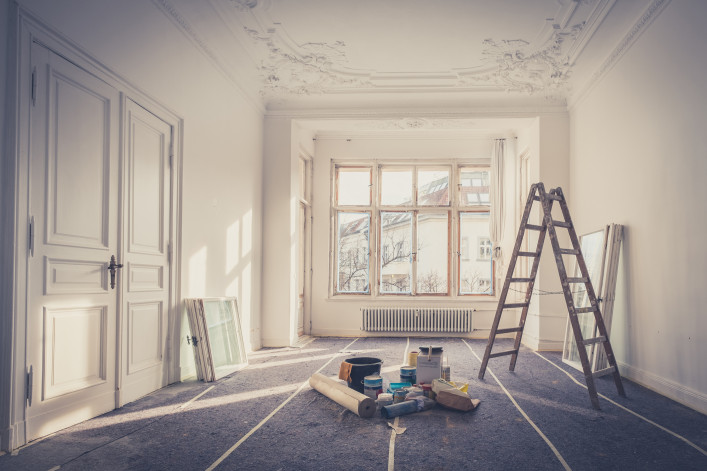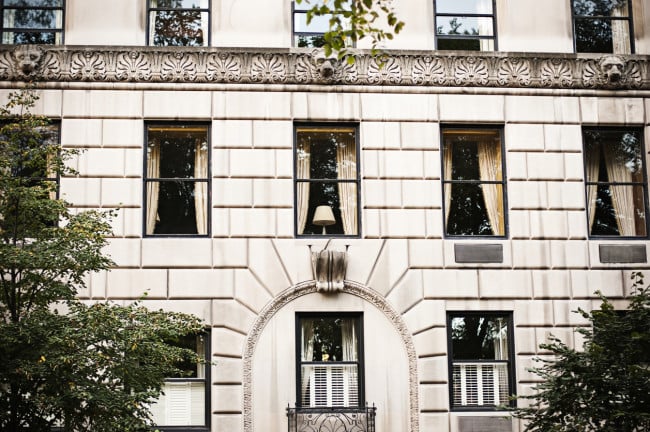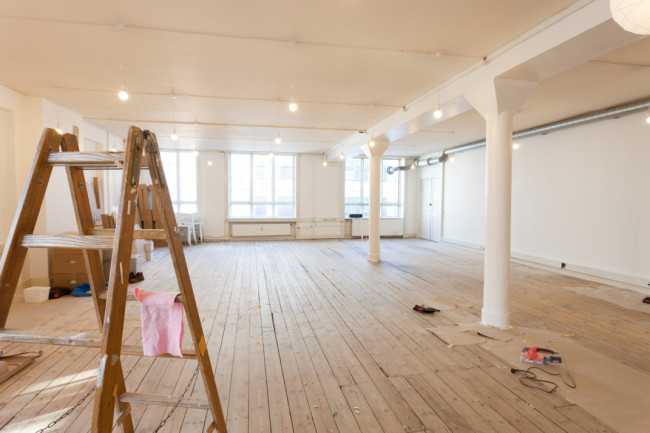What is an alteration agreement, and what should I do if my building doesn't have one?
If you’re a New York City homeowner planning a renovation, it’s inevitable that you’ll need to consult your building’s alteration agreement—or deal with its lack of one.
While alteration agreements do impose restrictions on renovators, they’re there to protect the building, not to make your life difficult. Alteration agreements are documents that can vary from one property to the next, but they are designed to make sure that the building-wide services and structures that serve all residents are not affected by construction in one apartment. You’ll be expected to sign it before beginning construction, and you must also submit renovation plans to building management for approval.
Alex Shkreli, an architect with Bolster, New York City company that empowers homeowners to control their major renovation by delivering industry-leading expertise and a radically transparent online platform, explains that alteration agreements will typically prohibit tampering with structures like load-bearing walls or the electrical or plumbing systems that serve the whole building. (Occasionally exceptions will be made for apartment combinations; for instance, Alex cites a vertical combination project in which contractors had to install new stairs between units.)
“It can seem onerous for a homeowner renovating for the first time,” Alex says, “but it’s about protecting the building from changes that could harm it.”
"A good way to think about an alteration agreement is as the rules of the game," says Bolster Founder and CEO Fraser Patterson. "Everyone is better off knowing what can and can’t be done, specifically when planning a layout with an architect. Without one, decisions can be discretional, which can muddle a renovator’s objectives."
With more than 50,000 square feet renovated in NYC, Bolster understands how to guide New Yorkers through any renovation challenge, from navigating Landmarks to recreating pre-war details, and gives them full visibility into project milestones. "Bolster is the only renovation firm to offer a fixed-price cost up-front. Once we perform due diligence and verify the existing conditions of your property, we absorb unforeseen project costs," says Bolster's CEO and co-founder Anna Karp. Ready to start your renovation? Learn more >>
Common restrictions of alteration agreements
Central air
Before alteration agreements became commonplace, renovations would sometimes negatively impact a building’s infrastructure, especially if contractors moved risers—the pipes or conduits that deliver electricity, plumbing, and gas to all residents. Today, most agreements will prohibit the relocation of these structures during renovations, which can impose some limitations on the placement of new appliances and fixtures.
A common source of delays on projects, for example, is the installation of central air conditioning.
“It’s a nice amenity to have, but a lot of buildings are resisting,” Alex says. “Some don’t have enough electrical power and need to upgrade the entire building, bringing conduits from the basement all the way to whatever floor your apartment is on. The other issue is that buildings get nervous that condensing units will cause vibrations that pass through the building.”
This is unlikely to happen, he says, if the units are installed properly with vibration pads, but sometimes it takes some convincing of building management.
“Central air usually is not forbidden in the alteration agreement, but the building may not be ready to accept it, so that sometimes causes delays,” Alex says.
Wet over dry
Many alteration agreements have restrictions on construction that places “wet over dry”—that is, the renovation of a kitchen or bathroom so that it extends over the bedroom, living, or dining area of your downstairs neighbor. "This may be common on plans that intend to flip the layout," Fraser explains.
Given the trend toward larger bathrooms and kitchens, many NYC homeowners, particularly those in pre-war apartments where those rooms tend to be small, are looking to expand those spaces. However, many alteration agreements include clauses restricting this, due to concerns about water leaks. (Whatever your alteration agreement, this is why it’s a good idea to ensure that your contractor is waterproofing these rooms correctly.)
Noise, too, poses an issue: “If you’re walking over a tiled bathroom or kitchen floor, or flushing the toilet over a bedroom, it could wake the neighbor,” Alex points out.
Depending on your building’s alteration agreement, you may face restrictions on kitchen and bathroom expansion or relocation, as well as placement of washers, dryers, and other appliances, or the installation of Jacuzzis.
Insurance
“The best intentioned contractors sometimes create unintended damage,” Alex says, which is why alteration agreements will usually contain language about insurance coverage.
This example of an alteration agreement requires a general liability insurance policy of at least $1 million; beyond the contractor’s policy, you should have homeowner’s insurance as a back-up.
Above and beyond the board’s requirements, homeowners should be absolutely certain that their contractor of choice has the right type of coverage for all insurances, including workers compensation. Here’s a 101 on checking that your contractor has the correct coverage—and credentials—for your project.
Timeline of project
Alteration agreements may also dictate the days and hours in which contractors can work in your apartment, as well as the timeline for the overall project.
If construction goes longer than it was scheduled for, you may face a fine per extra work day. “But if you’re at the end of the project, just painting, putting down tiles, not doing any loud work, buildings will be understanding most of the time,” Alex says.
Note that some buildings’ alteration agreements, though, are particularly strict about renovation timing, and will only allow work during the summer, leaving homeowners a small window for their projects. In these cases, you’ll need to be prepared, once the school year is over, to begin demolition and construction right away.
"Bolster’s process evaluates a real time frame for a project’s duration from the get-go, so homeowners have an idea of how to control the scope of work to avoid incurring unnecessary fines," Fraser says.
You Might Also Like
What to do if your building doesn’t have an alteration agreement
Alteration agreements can vary from building to building; higher-end developments tend to have stricter ones, Alex says.
Smaller buildings, by contrast, might not have one at all. And if you’re looking at an apartment in such a building with plans to buy and renovate, keep in mind that your broker may not be aware of construction policies.
“Some brokers tell clients to just show their renovation plans to the super,” Alex says. “A good super can definitely be helpful, but they don’t have the authority to allow you to renovate however you want.”
Instead, Alex says, “Consult with the board president and find out what the building allows and doesn’t during a renovation. I think the best way to do this is via email, so you have something in writing from the board president before you spend too much time and money designing your space.”
Specific questions to pose in your email might address building policies for wet over dry construction, regulations for the duration of your project and the hours during which construction can take place, and whether there are rules for installing central air.
It’s also a good idea to inform the other families in your building about your plans, so they have a chance to voice their own questions and concerns.
And once you have a vision in mind for your renovation, speak with an architect who is familiar with alteration agreements.
Every year, New Yorkers waste over $700M following the usual renovation process.
Bolster has uncovered the drivers behind these inefficiencies and has developed a proprietary solution that applies to every home renovation project. Bolster is the first company to bring radical transparency, analytics, and accountability to the entire process. They promise that every project is thoughtfully designed and beautifully delivered for a fair price, on time, and on budget. To start your major home renovation project, visit bolster.us






























